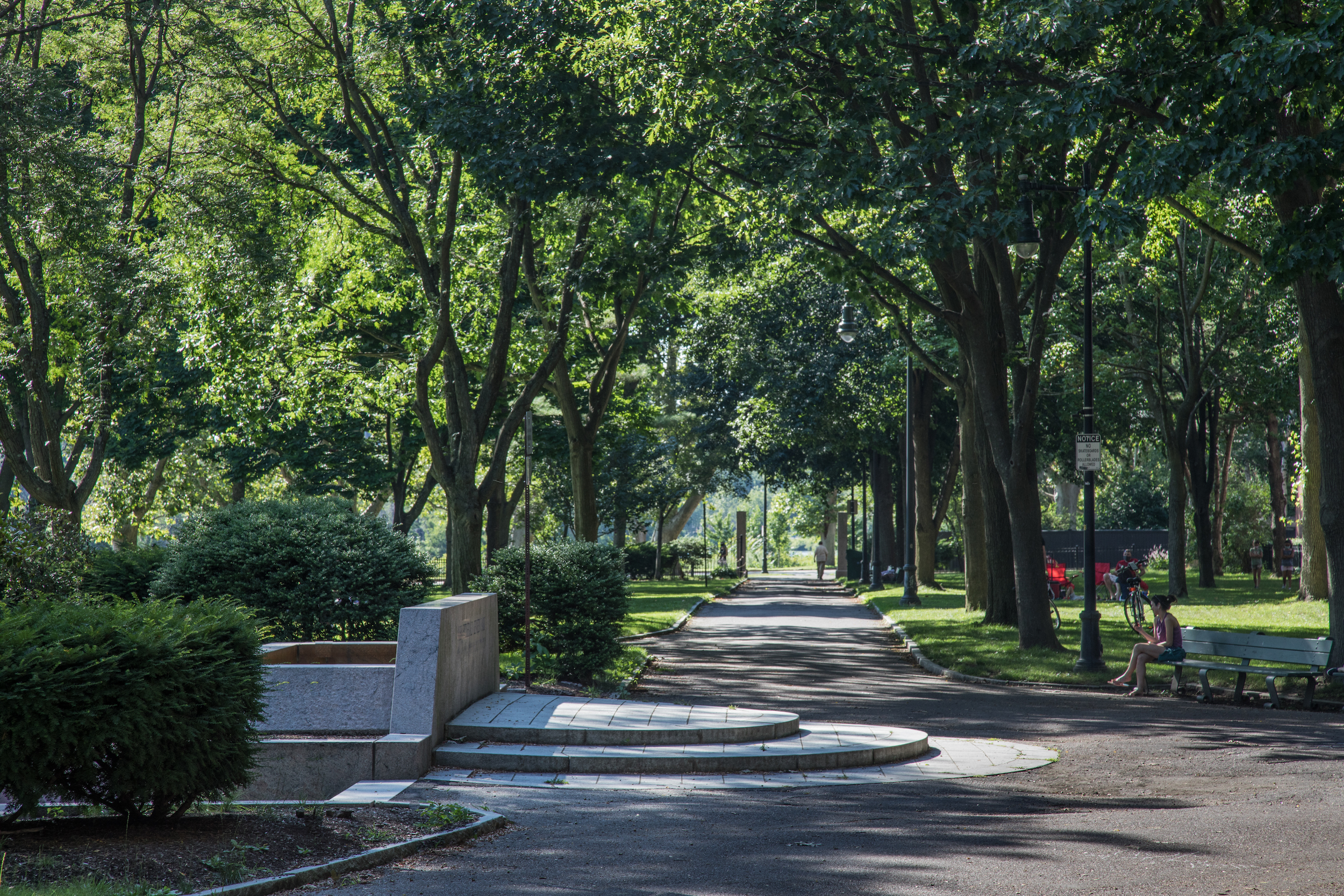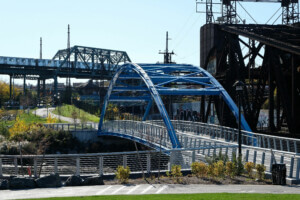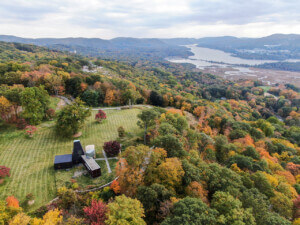During a year in which women-designed landscapes have been both celebrated and the threats against them drawn attention to, Washington, D.C.-based nonprofit The Cultural Landscape Foundation (TCLF) broke the news that trailblazing landscape architect and educator Carol R. Johnson passed away on December 11 in Boothbay Harbor, Maine. She was 91.
After establishing a landscape architecture practice in an era when licensed women landscape architects were virtually nonexistent in the United States, Johnson went on to dramatically expand her eponymous firm while overseeing the design of numerous public parks, waterfront revitalization projects, and college campuses in and around—but not exclusively to—Boston. This includes the John F. Kennedy Memorial Park, a five-acre green space nestled along the Charles River in Cambridge that opened to the public in May 1987. The park is currently in need of various forms of maintenance and was included in Landslide 2020: Women Take the Lead, the latest edition of TCLF’s comprehensive annual report spotlighting imperiled landscapes. In 2006, Charles A. Birnbaum, president and CEO of The Cultural Landscape Foundation, interviewed Johnson for an extensive oral history of her life and career.
“More than just gardens and campus landscapes, Carol Johnson created the first woman-owned practice of significant size, stature and influence operating in the urban realm helping to shape and revitalize cities,” Birnbaum told AN.

Born in Elizabeth, New Jersey, Johnson graduated from Wellesley College in 1951 with a Bachelor of Arts in English. It was at Wellesley, on the college’s 720-acre Frederick Law Olmsted Jr.-designed campus, that Johnson formed her earliest memories of “living in a consciously designed landscape,” per an article published in tribute to Johnson by TCLF. Following her studies and a subsequent bicycle tour around Europe, Johnson worked at a commercial plant nursery in Bedford, Massachusetts, where she met three landscape architecture students—John Frey, Pat Manhart, and Eric Desty—who were attending the Harvard Graduate School of Design. Although Johnson knew little about landscape architecture at the time, the trio, as recounted by TCLF, encouraged her to pursue a career in the field and she ultimately did, graduating from Harvard GSD in 1957. Two years later, following a brief turn with The Architects Collaborative, Johnson established her own landscape architecture practice, which largely tackled residential commissions and was based out of her Cambridge apartment for the first several years of its existence.
In 1966, Johnson returned to Harvard GSD, this time in the role of professor within the Planning Department, where she taught until 1973.
Although her growing firm—known as Carol R. Johnson & Associates or CRJA from 1970 through 2011—worked extensively in Boston and environs, projects located further afield have been integral to the practice for much of its long history. An early major non-domestic project was the landscape of the U.S. Pavilion for Expo ’67 in Montreal, where Johnson collaborated with Buckminster Fuller and Cambridge Seven Associates. Other early projects outside of New England included a pair of major visual impact assessments, one for the Chevron Oil Refinery near her native Elizabeth in Perth Amboy, New Jersey (1975) and the other for Bell Station on Lake Cayuga in New York’s Finger Lakes region (1981). Back in Massachusetts, another major project of this era at the Mystic River Reservation, a nature preserve just north of Boston, served as an “early example of the firm’s ability to meld its interest in history with state-of-the-art environmental science” according to a firm timeline.

In more recent years, the firm—contemporarily known as IBI Placemaking, previously CRJA-IBI Group, following its 2011 acquisition by the Toronto-headquartered IBI Group—has completed numerous projects in the United Arab Emirates as well as in Egypt, Tunisia, South Korea, Bermuda, and Taipei.
Per TCLF, many of CRJA’s most significant stateside civic projects came in the 1980s and ’90s, many of them revolving around the reclamation of disused and forsaken stretches of urban waterfront. Completed works of this era include Lechmere Canal Park in East Cambridge; Old Harbor Park in Dorchester, Massachusetts; John Marshall Memorial Park in Washington, D.C; and, as mentioned, John F. Kennedy Park in Cambridge. In the 1990s, CRJA was also tapped as the lead landscape architect for Boston’s herculean Big Dig megaproject. Over years, the firm has also overseen master plans and campus site improvements for dozens of institutions of higher learning such as Harvard, Wellesley, Duke University, Williams College, Boston College, Rollins College, and Agnes Scott College in Decatur, Georgia.
In 1998, two years after being bestowed with the National Endowment for the Arts’ Excellence in Universal Design Award, Johnson was named as the first woman recipient of the coveted ASLA Medal from the American Society of Landscape Architects (ASLA). She became a Fellow of the ASLA in 1982.
Outside of her work with her namesake firm in its various permutations, Johnson served as a member of the Treasury Department’s Commission on Small Business during the Carter administration, and later, on the Committee on Development Options in the late 1970s and early 1980s. Also a longtime member of the City of Boston Civic Design Commission, Johnson retired from the practice that she had founded six decades prior in 2016. Her legacy is indelible.











